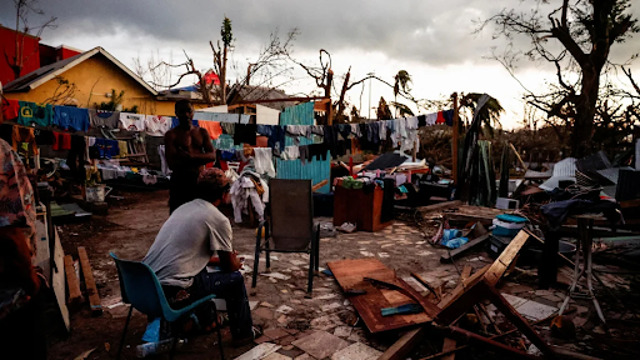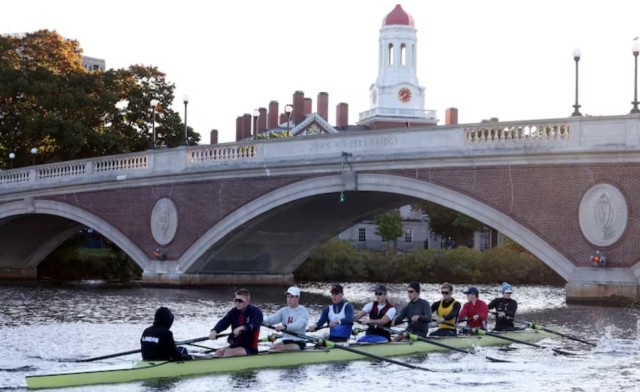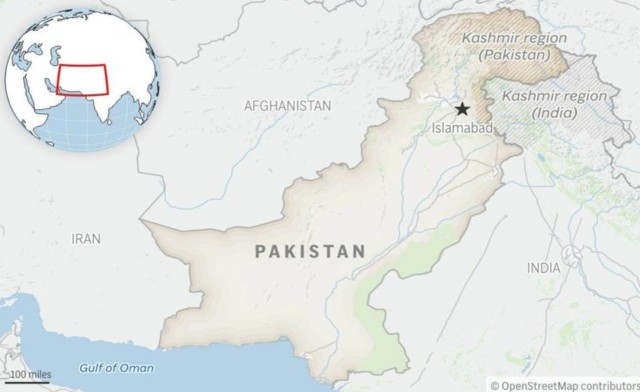
A man is seen sitting in the backyard of a home in Pamandzi, Mayotte, on December 17, after Cyclone Chido caused significant damage. Getty Images
Cyclone Chido wreaked havoc on Mayotte, a French overseas territory in the Indian Ocean, leaving at least 31 confirmed deaths as of Wednesday, four days after the storm hit. Local officials have warned that the true death toll could be much higher, possibly reaching into the hundreds or even thousands. The cyclone, described as the worst to strike the region in 90 years, has caused massive destruction, particularly in the slums where many undocumented migrants live.
Mayotte, known as France's poorest overseas territory, has a population that is difficult to determine accurately due to a large number of undocumented immigrants. While official figures put the population at 321,000, experts believe the number is significantly higher. Many of the island's residents live in fragile shantytowns, which were obliterated by the cyclone's winds, reaching speeds of 200 kph (124 mph). The local government has been struggling to reach all affected areas, making it difficult to assess the full scale of the disaster.
With relief operations ramping up, French authorities have sent supplies, including 120 metric tons of food, via airlifts from Reunion Island. Despite the efforts, the situation remains dire, especially in areas where people are still without access to clean drinking water. Thousands are at risk of disease outbreaks due to the prolonged exposure to stagnant water and the many uncollected bodies. Health workers are preparing for a public health crisis as they await further information on the full extent of the storm's damage.
The island's economy, already in a fragile state, faces further setbacks. Around 75% of people in Mayotte live below the poverty line, and the destruction caused by the cyclone will only deepen the region’s dependence on France for financial assistance. The island, which exports goods like vanilla and coffee, rarely attracts tourists, further limiting its ability to recover independently.
A view of Kaweni in Mayotte, France, showing the damage caused by Cyclone Chido on Wednesday, December 18. Reuters
In Mamoudzou, the island's capital, residents sifted through debris and makeshift homes, desperately trying to salvage anything that could be reused. Tree branches, which had survived the storm's fierce winds, were left hanging with clothes thrown up by the cyclone. The maternity ward, usually bustling with activity, saw fewer patients as the island’s medical infrastructure struggled to keep up with the disaster's scale.
As the situation unfolded, local and international officials have worked to bring attention to Mayotte's plight. French President Emmanuel Macron is scheduled to visit the island on Thursday. In the meantime, the French government is facing criticism from opposition politicians who claim the country neglected Mayotte's needs and failed to prepare for the storm. Some right-wing politicians have also raised concerns about illegal immigration, which they argue has worsened the poverty and infrastructure problems on the island.
The storm's aftermath has also raised concerns about Mayotte's vulnerability to future natural disasters. The cyclone’s deadly impact serves as a reminder of the growing dangers of climate change, which is expected to bring more extreme weather to regions like Mayotte. In the face of this crisis, the island’s residents are calling for more substantial aid and a long-term commitment from France to help rebuild and protect the territory from future disasters.















